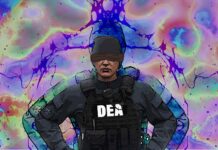- How to Safely Access Psychiatric Support in Times of Psychedelic Crisis - December 17, 2018
- Why a Culture of Integration is Critical For the Modern Psychedelic Movement - September 27, 2017
Psychedelics are revolutionizing modern medicine, offering new opportunities for mental health where current medical technology is stuck. The psychedelic renaissance is here and, with its excitement and hopefulness, it is important to recognize that, while psychedelics hold tremendous healing potential, they are only one possible solution, among a spectrum of interventions. They are on a spectrum that Western medicine exists on along with them; one is not better than the other, although one may be more appropriate than the other, depending on an individual’s unique needs and make up.
The psychedelic movement has a necessary resistance towards Western allopathic medicine. We’ve fought for decades against power dynamics and stigma towards us for our beliefs in holistic and indigenous frameworks, as well as our activism for cognitive liberty. However, there is a time and place for every lens and approach in health care; how do we psychonauts turn to mainstream medicine as an ally during a critical time when it could be the best care to offer someone in need?
My intention in this article is to remove some of the shame that may arise if a person in the psychedelic community needs to seek conventional psychiatric intervention, identify when seeking psychiatric support maybe helpful, and lay out how to utilize the medical system in times of crisis safely, while holding a psychedelic framework.
When Might Psychiatric Support be Helpful?
When we are within our window of tolerance, we can be rational, receptive to feedback or therapy, engage with ourselves and others, and explore our spiritual connections. However, when we are outside of our window of tolerance, all we can focus on is survival.
First off, let’s discuss the belief that medications will suppress an individual’s psycho-emotional healing process with psychedelics. Yes, it is true that over-medication happens in our culture, and when people are over-medicated, their symptoms can be masked in a way that prevents insight into what exists at their core. However, for individuals in crisis, it is also true that if symptoms are overwhelming, they may become exhausted trying to manage them so that they no longer have enough energy left over to be curious about what lies deep within themselves. If a person internally feels so chaotic that they are in survival mode, their priority is to live, not to look at their healing or spiritual process. There is a concept known as “the window of tolerance.” When we are within our window of tolerance, we can be rational, receptive to feedback or therapy, engage with ourselves and others, and explore our spiritual connections. However, when we are outside of our window of tolerance, all we can focus on is survival.
This concept of the window of tolerance is useful in understanding and differentiating between spiritual emergence, spiritual emergency, and underlying psychopathology. According to Stan and Cristina Grof,1 spiritual emergence is, “the movement of an individual to a more expanded way of being that involves enhanced emotional and psychosomatic health, greater freedom of personal choices, and a sense of deeper connection with other people, nature, and the cosmos. An important part of this development is an increasing awareness of the spiritual dimension in one’s life and in the universal scheme of things” (p. 34). Exploring psychedelics does not guarantee a spiritual emergence; however, it certainly increases the likelihood that individuals may have insights and reflections that lead them to deeper spiritual and emotional connections. For most, spiritual emergence is an inherent component of psychedelic experience, and for a spiritual emergence to take place, the individual must be within their window of tolerance.
That being said, in the same way that psychedelics can precipitate a spiritual emergence, they also have the potential to induce a crisis. This crisis could indicate a spiritual emergency or, in extreme cases, underlying psychopathology.
That being said, in the same way that psychedelics can precipitate a spiritual emergence, they also have the potential to induce a crisis. This crisis could indicate a spiritual emergency or, in extreme cases, underlying psychopathology.(*) Spiritual emergency is an “experientially difficult stage of a profound psychological transformation that involves one’s entire being. This is a crisis point within the transformational process of spiritual emergence. It may take the form of non-ordinary states of consciousness and may involve unusual thoughts, intense emotions, visions, and other sensory changes, as well as various physical manifestations”.2 A spiritual emergency is a form of being out of the window of tolerance. Some individuals find their way through a spiritual emergency, get back into their window of tolerance, and move towards spiritual emergence.
Additional resources and support are typically required for spiritual emergencies to be worked with in a productive way. This may range from peer support to professional support. Some extremes of spiritual emergency make it difficult to transition into spiritual emergence, and seeking psychiatric care may be helpful. Psychiatric interventions such as medication can bring individuals who are out of their window of tolerance back into it so they can access deeper healing resources, begin to engage with their personal processing or spiritual work, and assimilate profound insights learned with psychedelics. In other words, when necessary, psychiatry can help support transition from spiritual emergency to spiritual emergence. The balance lies in how medications are being used to help bring someone into their window of tolerance without blunting the individual to the point of preventing the transformation.
Indicators that someone may be out of their window of tolerance after a psychedelic experience are: a) not sleeping for more than one night; b) inability to attend to occupational, family, or other social responsibilities and needs; c) inability to attend to activities of daily living, such as feeding, dressing, and bathing; d) posing potential danger to themselves or others; and e) caretakers and loved ones are depleted from tending to them.
How Do We Use the Medical System Safely While Holding a Psychedelic Framework?
First, be prepared. Always know the medical and psychiatric history, as well as emergency contacts, of the friends you may be tripping with and the clients you may be facilitating experiences for. Being prepared also means having a plan for emergencies. The essentials for any psychedelic emergency plan are: 1) Get basic first aid training; 2) make sure food and water is available, that the environment is safe, and decrease stimulation (e.g., noise and lights); 3) do not leave a person alone at any time; 4) have a list of local health care providers who are psychedelic-friendly to call in an emergency. Alternatively, if you can’t find a psychedelic- friendly healthcare provider, have a list of people who are familiar enough with medical terminology and systems to advocate for the person in crisis when interfacing with the medical system; and 5) be prepared to accompany a person in need of medical care so they are with someone who is familiar and they trust.
We can assess the level of crisis a person is in and the level of care they may need, prudently prescribe medications as needed to slow the chaos of a spiritual emergency, and support the unfolding of a spiritual emergence, hopefully preventing the need for hospitalization. In the event of a hospitalization,
Ideally, the best ally will be a psychedelic-friendly healthcare provider in your local community that you trust; so, do some research and make contacts ahead of time. Psychedelics are gaining momentum, and there are many more clinicians who are familiar with them out there than you think. We can assess the level of crisis a person is in and the level of care they may need, prudently prescribe medications as needed to slow the chaos of a spiritual emergency, and support the unfolding of a spiritual emergence, hopefully preventing the need for hospitalization. In the event of a hospitalization, we can help advocate for the individual within the hospital setting so that they are seen from a spiritual perspective rather than a pathological one. Once out of the hospital, we can taper people off of medications to allow for deeper internal work to occur.
Remember that if someone enters the medical system from a place of care, there is a greater possibility of having the experience of care while in it. It is critical to create a kind and loving container for someone in crisis. This container is created by having allies in the medical model, as well as the support of friends and family in holding a spiritual and psychedelic framework for the individual in crisis while they are within an allopathic system. Have fun and be safe out there!
(*) Please note that the discussion and framing of psychopathology in relationship to psychedelics, spiritual emergence, and spiritual emergency is beyond the scope of this article.
Note:
This paper was presented at Cultural and Political Perspectives in Psychedelic Science, a symposium promoted by Chacruna and the East-West Psychology Program at the California Institute of Integral Studies (CIIS), in San Francisco on August 18 and 19, 2018. The author would like to acknowledge the Entheogenic Research, Integration, and Education (ERIE), James Henry, Andrew Penn, and Tanya Kammonen for their feedback.
References
Take a minute to browse our stock:
Did you enjoy reading this article?
Please support Chacruna's work by donating to us. We are an independent organization and we offer free education and advocacy for psychedelic plant medicines. We are a team of dedicated volunteers!
Can you help Chacruna advance cultural understanding around these substances?















